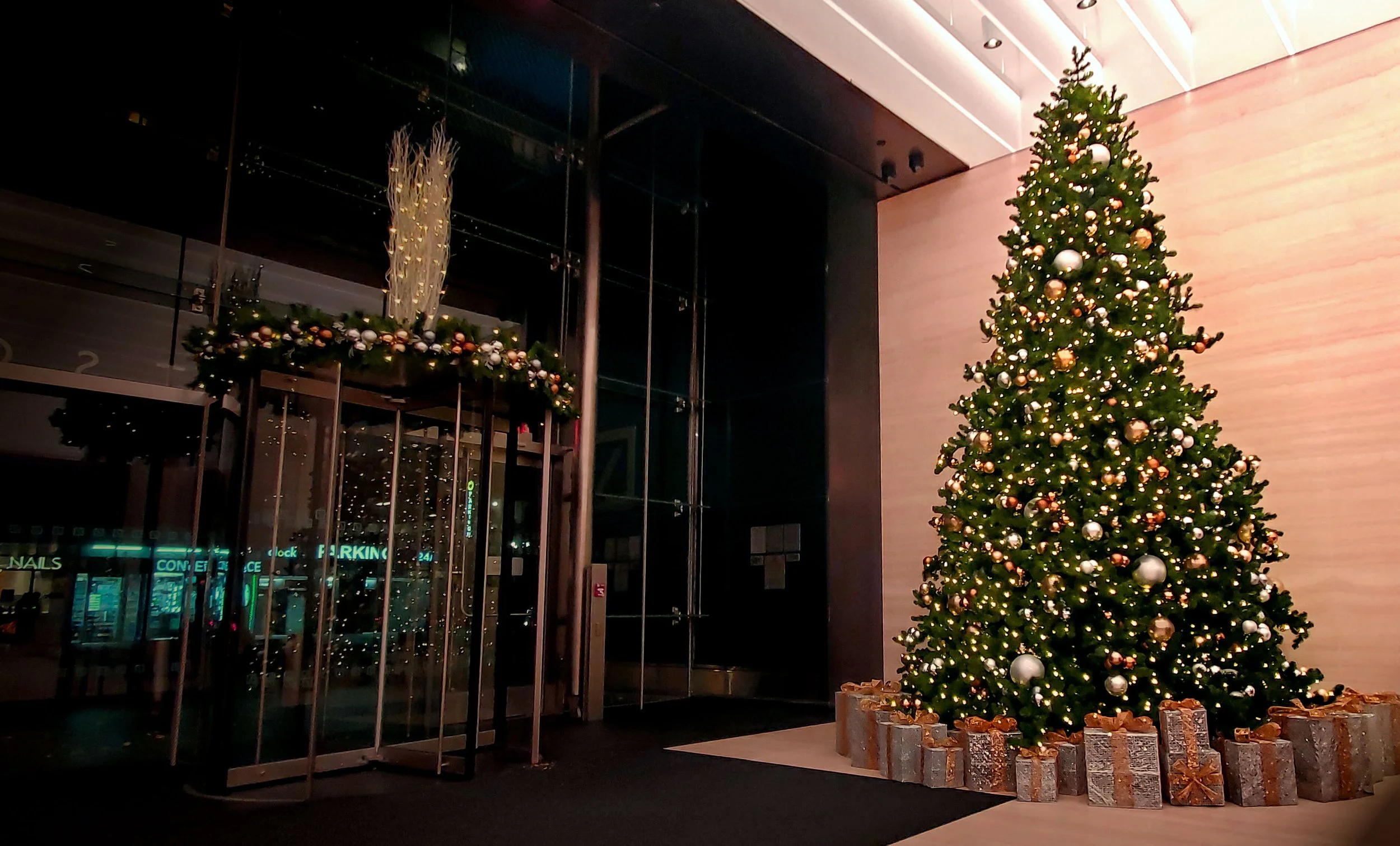Assessments: The Secret CEOs Overlook
Is “Corporate” Wellness a Dirty Word?
(Or Why Your Team Deserves More Than a Cookie-Cutter Fix)
All right, let’s get real. “Corporate Wellness” sounds stiff, right? Maybe even a little cold. Like fluorescent lights, HR manuals, and someone reminding you about the dress code. No wonder some small businesses run the other way when they hear it.
But here’s the twist: the concept itself isn’t bad. In fact, it’s life-changing when done right. The problem is the way we label and deliver it.
That’s why more and more consultants (like me) are shifting from corporate wellness to team wellness. Because whether you’ve got 10 employees or 200, it’s not about the word “corporate.” It’s about creating a team that feels good, works better, and thrives together.
And the magic key to unlocking that? Assessments. (Blog post con’t below)
Watch the video here:
Timestamps:
00:00 Introduction to Corporate Wellness Q&A
00:05 Rebranding to Team Wellness
00:56 The Importance of Assessments
02:37 Real-Life Example: Massage Therapy
03:28 Discovery Calls and Assessments
07:22 Common Assessment Challenges
08:29 Mistakes to Avoid in Assessments
17:07 Pricing Your Assessments
18:35 Designing Effective Assessments
22:35 Concluding Thoughts and Personal Experience
Why Assessments Are Your Secret Weapon
Let’s be honest—most wellness programs flop. They sound exciting at first. Employees sign up for the yoga challenge, the step tracker, or the smoothie bar. But a few weeks in? Participation tanks.
Why? Because it’s not what people really needed.
An assessment changes that. Think of it as the doctor’s checkup before the prescription. No responsible doctor would hand you random pills without running tests. And yet, so many companies skip straight to the “wellness solution” without asking the most important questions.
When you assess first, you stop throwing spaghetti at the wall and start creating a real, targeted game plan.
The Big Benefits of a Wellness Assessment
Here’s what happens when you take time to run an assessment before offering a program:
You get the truth, not guesses. Employees might not tell their boss, “I’m stressed out and burned out.” But they’ll tell you anonymously on a survey.
You uncover blind spots. Leaders often think, “Oh, my team loves the free snacks and the gym pass.” Meanwhile, employees are quietly wishing for flexible schedules or stress management.
You become the trusted advisor. You’re no longer the “yoga person” or “step challenge coach.” You’re the strategic partner helping improve the business from the inside out.
You design programs that stick. Instead of cookie-cutter solutions, you get programs people actually want to engage in.
You set yourself up for results. Better engagement, higher productivity, and happier employees—all trace back to starting with the right foundation.
But What Do You Call It?
Here’s where it gets fun. Don’t just call it an “assessment.” That word feels clinical and a little boring.
I like to call mine a Game Plan. It makes sense because I use a lot of sports psychology in my work. You could call yours a “Wellness Map,” a “Stress Reset,” or even “The Starting Line.”
The point is—brand it in a way that feels exciting and valuable. Not like another HR task.
Common Mistakes to Avoid
Now, let’s talk pitfalls. These are the traps I see wellness pros and even HR teams fall into:
Skipping the assessment entirely. Going straight into a challenge or app program without knowing what the team actually needs. Result: low participation and wasted dollars.
Asking vague questions. If you send out a survey that says, “Do you want wellness?” you’re going to get a bunch of eye rolls. Be specific: “Would stress management tools help you?” “Would you use a quiet room?”
Undervaluing the assessment. Pricing it at $500 might feel easy, but it sends the wrong message. A powerful assessment is the foundation of strategy—it deserves to be priced with respect.
Treating it as one-and-done. Teams change. Stress levels shift. A quarterly check-in keeps the wellness plan fresh and relevant.
Pricing Your Assessment (Without Selling Yourself Short)
Here’s a rough guide for pricing your assessments:
Small teams (under 50 employees): $1,000–$2,500
Mid-sized teams (50–200 employees): $3,000–$5,000
Larger/custom projects: Flat fee, customized after discovery
And yes—you can apply the assessment fee toward a longer program if they sign on. That makes it a no-brainer for most leaders.
Real-Life Story: The Massage Therapist
Here’s a quick example.
My massage therapist told me about a local business owner, Craig, who regularly brings her in to treat his team. Sounds great, right?
But here’s the thing—massage only helps the employees who actually like massage. What about the ones who find it awkward? Or the ones still stressed out afterward?
That’s where an assessment would show the full picture. Maybe half the team wants stress management workshops. Maybe others want financial wellness. Suddenly, instead of a random perk, you’ve got a tailored program that helps everyone.
How to Run Your First Assessment
Ready to try this? Here’s a simple process to get started:
Start with a discovery call. Ask the leader:
What’s worked in the past?
What didn’t?
What would success look like six months from now?
Build a short, anonymous survey. Use Google Forms or Typeform. Ask targeted questions:
What drains your energy most at work?
If you had a magic wand, what one thing would make work less stressful?
Which of these wellness experiences would you actually use?
Analyze and report. Use tools like ChatGPT to sort responses into themes (stress, communication, energy, etc.).
Present a Game Plan. Don’t just hand over raw data. Package it into a branded report with recommendations, next steps, and a vision of what success could look like.
Want to take your assessments from good to unforgettable? Add these extras:
Stress Thermometer: A simple 1–10 scale for employees to rank stress levels. Track it over time.
Recognition Tracker: Ask employees if they feel recognized at work—this is one of the biggest drivers of happiness.
Magic Wand Question: Always include it. It gets people to dream instead of just complain.
Wellness Menu: Offer a list of possible wellness experiences (sound healing, aromatherapy, team-building, financial workshops). Let employees vote.
What You Can Expect
When you start using assessments as your entry point, here’s what will happen:
Leaders will see you as a strategic partner, not a vendor.
Employees will feel heard, valued, and included.
Programs will feel custom-built, not cookie-cutter.
Engagement rates will soar because you’re solving real problems.
And most importantly—you’ll stand out in a noisy wellness market as the person who actually delivers results.
Final Thought
An assessment isn’t just a piece of paper or a survey. It’s a credibility builder.
It’s what turns you from “just another wellness coach” into a trusted advisor that leaders want at the table.
So here’s your challenge: create your first (or next) assessment this week. Test it with a small business owner. Get feedback. Tweak it.
Remember: you’re not just offering wellness. You’re building healthier, happier, more productive teams. And it all starts with asking the right questions.
Read More Articles from Kathie
Transcript:
📍 📍 📍 All right. Hello and welcome to Corporate Wellness q and A. I'm about to change the name of this to Team Wellness. Team Wellness, because. Um, I just got off a call with Maria Als house and it's like corporate is almost like a dirty word, and you think about it, it is, and it's gonna turn off some of your clients, but I'm going to keep it corporate wellness in the group just because that's what people identify with.
But we'll shift that as we move along because as you'll see, it's just, um, it, it, it actually is a four letter word, corporate wellness. You know, some of these companies don't even want to identify with that. And if you're working with a small team, that's not gonna be a corporate, you know, think about it.
So today we're talking about assessments, what they are, and even that word assessment. Maybe we're gonna change our mindset on that as well today. And I want you to start looking at what these assessments mean. They're the meat and potatoes of everything. It can. Take you from an unknown wellness expert to the trusted person who comes in and helps the team and helps them overcome the stress, the burnout, stress is at an all time high.
And if an employer can make the stress levels go down inside the workplace, imagine what's gonna happen. The team will just feel better. They're gonna work together better. They're gonna be more productive. They're gonna be happier. They're gonna feel recognized and rewarded, which is what an. It's what the employees want if they're just recognized and even rewarded for what they're doing, and they don't even have to like go, Hey, look what I'm doing over here.
No, it just happens organically. Think about it. If your boss is bringing in a massage therapist and a sound healer for an experience that they're going, Hey, look what my boss does. And it's not even called a wellness event, it's just. We trick 'em into thinking, Hey, look, we're taking care of you. So it's just awesome.
Awesome, awesome. So before we get started, I want you to think of a win that you've had this week. And I have had a win. I have a very close friend that owns a small business of 20 employees and he takes care of his employees. And the reason I brought up the massage therapist is because my massage therapist was like, Kathy, you need to go talk to Craig.
He brings me in for massage. But he doesn't even think of, he's taking care of his employees. But think about the employee who doesn't want massage and they're stressed out. You could make it an experience bringing in the massage therapist as he already does, and then add sound healing, add aromatherapy, and kind of keep it like around, um.
Calming and stress relief, and then, you know, have some brochures on what sound healing is and how it helps, or what tapping is and how it helps. There's so many different things, so my hope is crossing my fingers. I'm gonna get on a discovery call with this, with the, with this potential client, and on this discovery call, I'm going to be asking him questions that I'm going to apply to an assessment.
If we start working together, but I don't even know if what I provide is something that he wants, and I don't wanna enter that conversation as, this is what you need, this is what you want. I want to ask him what he's done. What he does want. And then also I want to ask him what a wellness person coming in and doing what I do, what it would look like in six months from now for his team.
What does he wanna see from that? So from that, I'm going to either. Give him a plan, and I'm going to tell him the first thing I need to do is talk to your employees and find out what they want, and I can give you a game plan of what we could do by providing an assessment. And this is all dependent on those discovery call questions.
If I don't even see he has a problem, I'm gonna say, sorry, you don't need me. And I will say that if that's necessary. Instead, I could position myself as person who could come in and go, look, let me ask your team what they want. Because so many times we don't know what our employees want. Employees are not gonna go, oh my God, I'm so stressed out.
I can't handle this and dah, dah. Their attitude is crappy on the phone. There's just different elements that are going on that. The boss doesn't know about because when the boss comes in, everybody sits up straight and goes, oh, I'm gonna behave myself. So let's talk about what an assessment is and then also be sure to write your wins down under the replay here if you have any, because let's share our wins.
Let's share what works for for us in general. So today we are talking about. Assessments assess as the entry point to team wellness. So the big idea, an assessment is the foundation of any effective wellness program. Instead of guessing or copying what's trendy. You're gonna be throwing spaghetti at the wall.
You uncover exactly what the company needs right now. So your program is meaningful and impactful, and that's what we want to sell, right? We want to make an impact and we want the program to be meaningful. We don't wanna throw spaghetti at the wall here. This is what you need. The better you challenges, this is gonna help your team.
No, it's not. It's not gonna help. I'm just here to tell you that's not the answer. That's not what's working right now. So I want you to think of the assessment as a doctor's checkup. Before prescribing medicine, a doctor would never hand you random pills. Until they run tests and ask questions and then diagnose in the same way you assess your, your assessment ensures wellness solution that matches the company's needs.
Again, we don't want to assume anything. You know what assume means? It means you made a ass outta you and me. So we are not gonna assume anything even on our discovery call. We're not gonna assume we are the answer, but that discovery call wholes the trinkets, that would be nuggets that you could use on the assessment.
All right, so. Here's some frustrations that you may encounter when you're doing assessments. Employees don't engage honestly on surveys. Leaders want a quick fix instead of a thoughtful process. Human resources or the person kind of in charge of the wellness feels pressure to show return on investment quickly without a clear baseline and.
You may feel overwhelmed trying to gather and interpret data, but thank goodness for chat GPT, because that's not gonna happen to you or me. Right? And we want to find, this is what we want. We want to create programs that actually stick. We don't wanna throw those challenges at them. We don't wanna throw a gym.
On site at them and spend all this money on a gym. We want to have programs that actually stick, that earn leadership, buy-in, and generate measurable results instead of chasing trendy perks. So there's some mistakes that are often made. They are skipping the assessment entirely. And the assessment is your entry point.
And here's bonus points. We're gonna talk about this at the end, is. You can charge for this. You can charge good money for this and even apply it towards the wellness program that you're going to be offering them. So. Skipping an assessment entirely and jumping into a program like the better You Challenges.
No, don't do that. Please stop doing that. Please stop. Because it leads to low participation. Yeah. Maybe the employees might get engaged, but you're just gonna have those challenges and then you're gonna have nothing else. And they're gonna be like, uh, Kathy just does fitness challenges. No, I don't. And. In today's world, stress again is at an all time high.
And if we can help these employees with their stress management, guess what's gonna happen. We're going to have a, an experience with us because we gave them the tools that they need to handle their stress. Okay?
Another mistake that's often made is you ask vague questions. Do you want wellness? And I'm talking about the assessment here. So in your assessment for the employees, do you even want wellness? Uh, duh. Some are gonna say no because they think that wellness is fitness and working out in the gym. Um, we all know that's not the case, but we can ask specific questions.
Again, go to chat. GPT. It's so beneficial and so helpful. When it comes to this, and you wanna ask meaningful discovery questions, when you're on that discovery call, that would lead to the assessment. So you ask 'em, what have you done in the past? What's worked? What didn't work? What did you like about it?
And don't forget the magic wand question. What would it look like six months from now if you had a very successful wellness program? Remember that? And here's another mistake that is often made. It's the pricing too low for the assessment because you're undervaluing the strategy work. This is where the nuts and bolts all come together and make the car run.
So we want to ask. We want to price this so it's value. You don't wanna price this at $500 because it's just gonna seem like too inexpensive, and this is where you're building out your program. And another mistake that I see is you treat the assessment as a one-time event instead of a continuous feedback tool.
So your assessments are not just one-time events, you run them throughout. Usually once a quarter because things start changing. So let's say we start to see that stress management has gone down and the employees feel rewarded and recognized, and maybe they want some fitness. So we start putting them inside an app where we start to train them and we start to teach 'em our fitness things, or whatever you do.
You could start adding that in once you start to see what the team needs even more, and that makes you a valuable asset for lifetime. A lifetime valuable asset or a strategic partner, instead of calling yourself a corporate wellness professional, say you're a team wellness strategic partner. That's just a little tip I threw in there.
So. What can you expect? What to expect when you do this? Well, leadership sees you as a strategic partner. Oh, I just said that. Not a vendor. They see you as a partner. And I was just on a call with Maria and we were talking about wellness in general and as. Working with these teams because they don't like the word corporate in a small office of 10 employees, they're not corporate.
Hello? No. You are a strategic partner in their business. You're helping them improve their business. You're not just a vendor, and I don't care what you do if you are a sound healer. If you are a, um, I don't know, communication expert, it doesn't matter, you are a strategic partner because. Let me tell you something.
Corporate wellness team wellness is not just about that. You want to create an experience where the team gets to enjoy all of the things that you do. For example, you could create your sound healing and have a massage therapist at the same thing. So start networking with your other partners out there and be bringing them in.
Here's a little tidbit, financial advice, financial advisors. Have somebody in your back pocket so you can position yourself as a wellness expert that is going to talk about financial wellness at your next experience. Okay. I'm just saying there's so many opportunities out there and we all need to build each other up on this and utilize each other as assets, so.
You can expect to confidently design a game plan tailored to the company, not a cookie cutter solution. And those better you. Challenges are a cookie cutter solution. You want a game plan that is. Effective for this company. And you could you, when you give this report to this, the leader that asked for it and paid for it, you could brand it with all the good stuff and say, look.
Look what this game plan has. I already see your team is all stressed out. You already bring Amy in for massage. But guess what? We're going to turn that massage into an experience where I bring in a sound healer and. Aromatherapy. And so we make it an experience where the whole team can take advantage of it because you found out that this is what works.
And you can also inspect. Expect engagement rates to increase because the program actually solves a real problems. Real problems. For example, take the guy that brings in the massage therapist, great, we see you like that. We see your employees like that, but let's solve the real problem here. Not everybody's gonna want massage.
You're bringing it in because your team is high stress. Yes. But guess what? I have other resources that can bring in for this. It's not, I'm not just solving the problem of massage. I'm solving the whole team experience of stress management. Make sense? Yeah. So here's some actions that. I recommend you take draft five to severing discovery call questions that dig beneath the service.
What is your team struggling with most right now? Energy, stress, communication, or engagement. And this is your discovery call questions as opposed to an assessment, but your assessments are going to be off of the discovery call. So, like I said, I'm going to ask the team, I'm gonna work with chat GPT on this, and I'm gonna say, look, what can we do to create a wellness experience for this team that is high stressed out?
They already do massage. What else could we do? What else they, they're lacking team building experiences, and I talked about this in one of my comments on there. I just found a local place that does team wellness experiences and it was like they do zip lining, they do climbing, they do team building experiences.
I'm gonna go partner with that person and talk to them about what they offer so that I can. Position myself as somebody, Hey look, this is one of the experiences I offer, and yes, it can be that way. So pricing your assessment appropriately. This one, I would really ask geo Penals question. Uh, this question because he's very.
Expert advice on it, but this is something that I'm kind of coming up with a, a rough draft, but I want you to remember this is where your value lies. So if you're only charging $500 for an assessment, they're not gonna see it as very valuable. And these assessments, you're gonna be spending time on it, analyzing it and trying to figure out what the team wants.
So pricing your assessment on small teams. Under 50 employees, 1000 to $2,500 per assessment. Now, you could even apply these prices towards your wellness program and tell them, look, something like this would happen if you take this benefit from this. But don't underestimate your value. Do not undervalue yourself.
So 1000 to $2,500. And then mid-size teams, 50 to 200 employees, which is our sweet spot, is 3000 to $5,000. And then larger or custom you, you could charge a flat fee and then decide if they wanna move forward with a program. So I want you to design a sample assessment for your next client or prospect.
And you can just do this in Google Slide, Google. Oh, what is it called? Google Forms. And that's a great place to start, especially if you're just new to this. They're not gonna be worried about that. But you can have all kinds of questions in Google Forms and you can learn so much about a team. And I also recommend complimenting that with chat GPT.
So you have your Google forms and you have all these great questions in there about what kind of experiences they may want. What are they going through? Are they having problems with leadership? Because so many times the leaders are not aware of what's going on in the team because they're not gonna tell their boss, Hey, this sucks right now because I'm under so much stress and I can't get this done.
But they're gonna tell an anonymous assessment that even just 10 employees would tell somebody outside of the company what's going on as opposed to telling. Their boss, where their boss is gonna find out. And this is where you use discernment and discretion. Keep those things simple. So if you're gonna have to share something really ugly with the boss, I would work with chat GPT on it and go, look, this is something I discovered.
How can I break it to the boss nicely because. You don't wanna offend them as well because leadership wants, you want them to feel where they are in leadership and, and position yourself as somebody who can fix this problem. And it's something as simple as maybe having a communication workshop. Having an emotional awareness workshop, having an emotional intelligence workshop, you'd be surprised at what people like they.
Um, I once had this one thing where we were talking about gaslighting. People don't really know what gaslighting is. And there was even this magnet that had all these little things that were gaslighting and it was so cute and so beneficial because people put that up at their desk and they're like, oh, you're gaslighting me now.
I'm not going there to like say this as a bad thing. It's more like to bring emotional awareness to a team who doesn't understand that you just gaslit the crap out of Amy over here. I didn't mean to do that, but I accidentally did. And once people start getting aware of emotional awareness and emotional intelligence, they're like, oh, I can't talk like that.
That's not healthy. That's not a very good place to be. So let's just ease that in simply. And so I want you to design a sample assessment and put it into, um, the comments below this, this replay, and let us, let us take the assessment. Let us analyze it, let us help you, give you feedback, and I will provide one myself as well so that we can bounce ideas off of each other.
So here's a key reminder. An assessment is not just data collection. It's your credibility builder. It transform you from a wellness professional to a trusted advisor who knows how to create results. Okay? So. Remember what you call it is like your game. I call it a game plan with my um, clients, because I do a lot of sports psychology.
But come up with something creative. Call it something creative because the assessment gives you a game plan. It gives you something solid to go with. So I'm gonna look and see if I have anybody in here asking questions or even if I'm still on camera.
Yes, I am. And I don't have anybody asking questions. So at the end of this recording, I was gonna talk about my, um, meeting with John today at Novita. And so what I did today is I paused my one 90 a month of the Coursey app. And when I did, I had asked them to do that and they didn't, and they still charged me.
So I'm hoping to get a credit. I'm not hoping I'm going to get a credit that, um, the conversation I had with John was. Mediocre. I am still really unhappy with Novita. I think he did ask me for my feedback on what I, I think they could improve on, and he did say something that kind of, I know this is gonna shock you.
He kind of insulted my intelligence. And it's kind of gonna insult yours too, if you're a new Vita partner. Because what he said was, um, we're gonna be more strategic about who we let in as partners because people don't know how to run a business and they don't know what they're doing. And I'm like. And he even went so far as to say people are afraid of rejection and they're not talking to people, and it was almost like a snide under mark because I don't have my Core 25 in there.
I do my work in notion, I don't do my work on a spreadsheet, and I was kind of reluctant like some of y'all are to share my core 25. It's almost like they want that information for themselves. Because they may market it with somebody else, so I don't trust them because I, I just never have, I mean, look at what, how they've treated us.
They just left us here and I told him that they needed a better mastermind to help us. And why aren't they investing in us? If they're gonna get 6%, they're not doing that. And so he said, well, I want to hear about your, I want you to give me an email with what your feedback is, and I'm ready for that. I've got it all prepared, and I'm going to be writing a blog post on it.
So it will be in that blog post. I will share it here. Second of all, I told him, I said, you know, you wanna be strategic about who you let in, but you're still marketing to us like. I said, and your marketing is, it's, it's gross. You're telling me I can make $50,000 in three months in a marketing email to somebody who's already inside your funnel?
I said, why don't you know how to. Tag people. You're telling me that and, and he didn't mean me. I, I hope, but who knows? He probably could have that. I don't know how to run a business and that some of these partners don't know how to run a business and actually talk to prospects. Yeah. And you're marketing to me that I could make $50,000 in three months, and this was pretty much the meat of the email.
And I'm like, you need to take me outta your marketing. If you're such a great business runner, and, uh, I'm done with them and I'm going to start blogging about my experience with them. So if you, you, I'm gonna be careful about it, but if you know any partners that need assistance and need a real mastermind, which is what we're doing here.
Invite them to the community, and as long as I'm able, I will stay open over here, but I don't know how much longer that's gonna happen. So we'll see. I'm happy, happy, happy to help anybody who's been stuck in this because I don't want other people being treated like this. I think it's unfair. I think it's unkind and that is not how I run my business.
I run my business from my heart and. I believe that will come back to me multiplied because I do that, because I have integrity, because I run that way and. I think that they're not discriminating who they take in there, and I think they just take money and then they don't help us because nobody's selling.
I don't know anybody who's really selling. I think Mary U is very close to selling one, but I think she's also changed her perspective on what corporate wellness looks like. Maybe it is, uh, the better you challenge and yeah, I think that's great. So here's one other thing I'm gonna leave you with before I go.
If you think that the Novita platform is so awesome and you wanna use it, partner with somebody who already has it and still use it and split the revenue. But honestly, I don't feel like Novita is gonna stay in business much longer if they don't straighten up. Maybe I shouldn't say that out loud, but think about it.
It is just, it's just not. A good business plan to not help your partners. If you're getting 6% of these sales, why aren't you helping us? Why don't you provide a mastermind like this? And you have to have your core 25 listed out before you get led into that mastermind. And then in that mastermind, what do they talk about?
Do they talk about. Objections. Do they talk about how to handle rejection? Hey, I have a video inside these things that my things, and I'll put it in the, in the comments below about. Handling rejection. It's gonna happen. It's going to happen, and we are fine with that. But let's support each other and come on, give us a school community where you talk about this kind of stuff and invite people in here.
You all you have to do is go to settings over there on the right and hit invite. You get a link that's going to give you 40% commission if those people start joining their own school community. So you don't have anything to lose. Just go do it. All right. It's my episode for today. I trust that you found it helpful, and I will be having a blog post that goes with this that will include resources below and how to go about getting your assessments taken care of for your team.
Let me know what works for you and share your wins in the comments below. Have a great day.







During high-stakes mergers and acquisitions, leadership nervous systems determine outcomes more than spreadsheets do. Control, catastrophe, collapse, calm, and withdrawal are predictable human responses under pressure. Unexamined, they cost millions. Managed, they protect enterprise value and integration success.
#MergersAndAcquisitions #PostMergerIntegration #FounderRisk #HumanCapital #ExecutiveLeadership